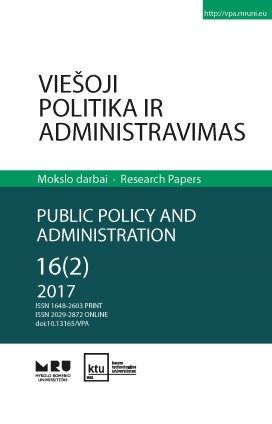The impact of intangible resources on economy in the EU
The impact of intangible resources on economy in the EU
Author(s): Žaneta Karazijienė, Artūras JurgelevičiusSubject(s): Public Administration, Economic development
Published by: Mykolas Romeris University
Keywords: Intangible resourses; economic growth; knowledge; creativity; entrepreneurship skills; creative class;
Summary/Abstract: To maintain the growth rate and insure the secure and sustainable development of economies, EU countries have to come up with and manage a new source of growth – intangible resources. The intangible resources are relatively a new concept analyzed in scientific literature. A diverse, multi-angle and complex nature of intangible resources can be treated as a new factor in production function. In the knowledge based economy, creativity, generation of knowledge and transmission of it must interact with each other and be combined with entrepreneurship skills. Only interaction between these three key intangible resources could ensure the transition of economy to a new stage of economic development. The purpose of the research paper is to reveal econometrical relationship between intangible resources and its impact on economy in the EU. As a result of analysis, the theoretical framework to evaluate intangible resources has been provided and the accumulation level of intangible resources in EU countries has been estimated. The econometrical relationship suggests the intangible resources have a very important impact on GDP accumulated level. The findings reveal that highest level of intangible resources is observed in Finland, Sweden, Germany, Denmark and Luxembourg. The lowest rate of intangible resources is observed in Cyprus, Romania, Poland, Bulgaria, Lithuania, Latvia and Greece. The conducted research also revealed that there is a strong statistical relationship between input and output of intangible resources. The constructed econometrical model suggests that the modern economic growth much depends on the level of accumulated intangible resources in the country. The change of estimated composite indicator of intangible resources by 1% influences the change of GDP by 0.954%.
Journal: Viešoji politika ir administravimas
- Issue Year: 16/2017
- Issue No: 2
- Page Range: 279-295
- Page Count: 17
- Language: English

